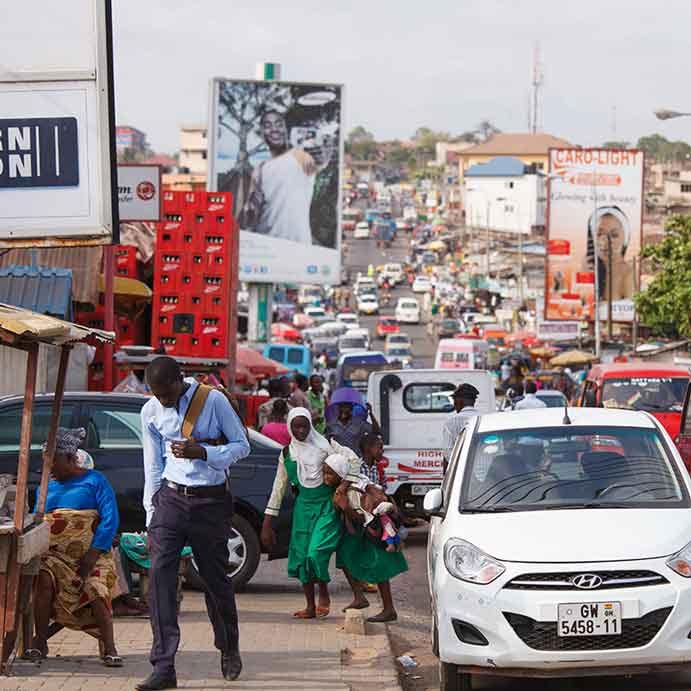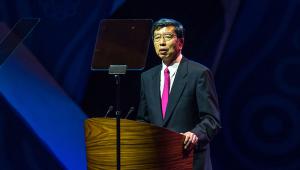Shutterstock_Ghana.jpg

Ghana_shutterstock
In its most recent African Economic Outlook, published today, the think-tank noted that Africa is urbanising at a historically rapid pace and experiencing an unprecedented demographic boom.
The population living in cities has doubled since 1995, to 472 million people last year. By 2050, two thirds of Africa’s population is expected to live in cities, but the OECD said this is not currently accompanied with the appropriate structural transformation.
“Africa’s ongoing, multi-faceted urban transition and the densification it produces offer new opportunities for improving economic and social development while protecting the environment in a holistic manner,” said Mario Pezzini, director of the OECD Development Centre and acting director of the OECD Development Co-operation directorate.
“The benefits could accrue for both urban and rural dwellers alike,” he added, “provided governments adopt an integrated approach.”
The OECD said tailored national urbanisation plans and innovative finance methods will be paramount, but common themes could be the promotion of efficient, multi-level governance systems, decentralisation, capacity building and increased transparency.
With the adequate policies, urbanisation will advance economic development through higher agricultural productivity, industrialisation, services stimulated by the growth of the middle-class and by encouraging investment from overseas, the OECD said.
Safer and inclusive urban housing and robust safety nets can also promote social development, while resource management, clean and cost-efficient public transport and improved waste collection can help contribute to sound environmental management and addressing climate change.
The report noted that poor planning leads to costly urban sprawl, as it has in Accra, Ghana. As the city’s population nearly doubled between 1991 and 2001, to 2.5 million, the built-up area of Accra tripled, from 10,000 hectares to 32,000 over the same period.
The OECD said a good approach to urbanisation should also include stepping up investment in urban infrastructure, improving connectivity with rural areas and between cities, and improved matching of real estate markets with demand by clarifying land rights.
Abebe Shimeles, acting director of the Development Research Department at the African Development Bank, said Africa had shown “remarkable resilience in the face of global economic adversity”.
The continent remained the fastest growing economic region after east Asia in 2015, with growth of 3.6%, higher than 2014’s 3.1% and more than double that of the euro area. The OECD anticipates growth to rise to 4.5% in 2017 if the world economy strengthens and commodity prices recover.
This is despite some of Africa’s largest economies, such as Nigeria or Angola, suffering heavily as a result of the commodity price slump.
But Shimeles also noted that turning Africa’s steady resilience into better lives for Africans will require strong policy action to promote faster and more inclusive growth in the continent’s cities.













